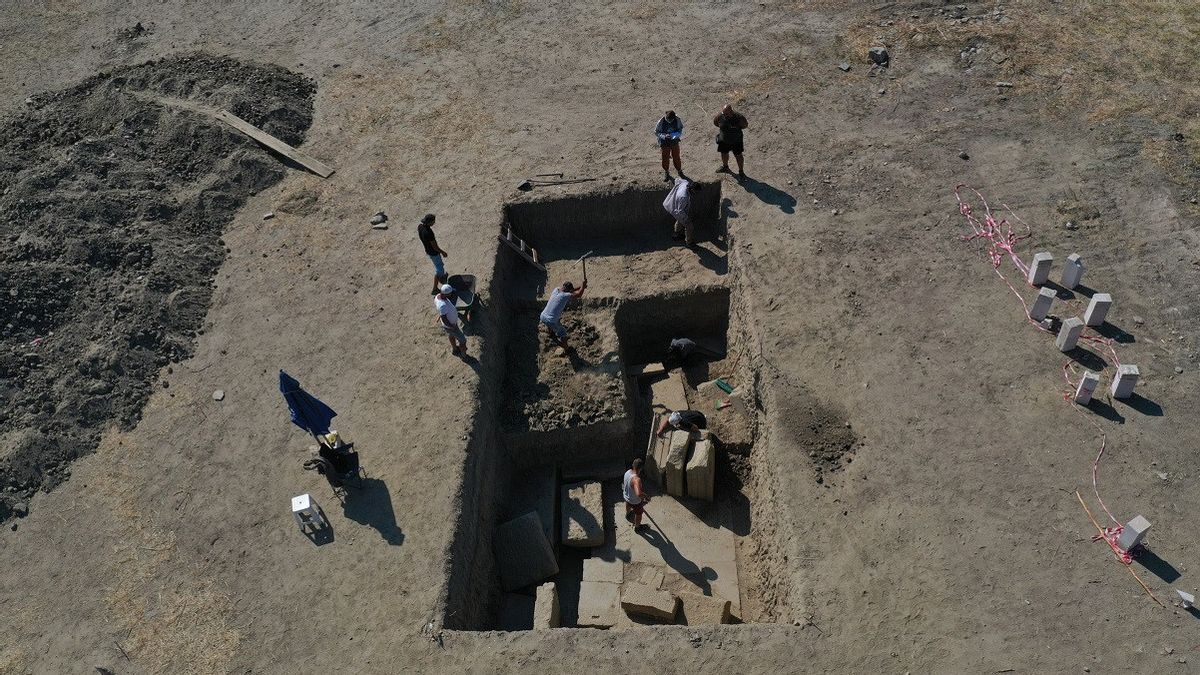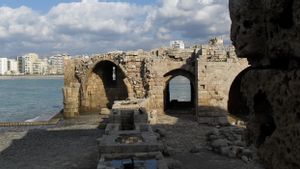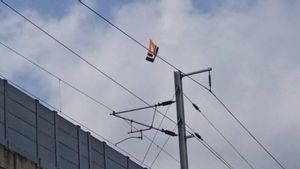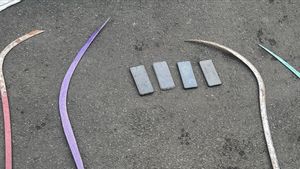JAKARTA - Archaeologists excavated the entrance gate to the Temple of Zeus in the ancient city of Magnesia in the Ortaklar district of Turkey's southern Aydın Province. Magnesia, the ancient Greek city is home to two temples, one to Artemis and one to Zeus.
The Artemis reserve, stadium, theater area, 80 statues, and various items have been excavated in the ancient city of Magnesia so far, during excavations led by Ankara University Archaeological Department associate professor, Görkem Kökdemir.
Speaking to Anadolu Agency (AA), Kökdemir said Magnesia was a prominent city in ancient times with its religious festivals held in temples and shrines.
"We think the temple we found in this area is as important in architectural history as the fourth largest Temple of Artemis in Anatolia. It is a temple dedicated to Zeus", he quoted Daily Sabah from Anadolu as September 26.
He said the ancient city of Magnesia had previously been excavated by Germans who brought some pieces of the Temple of Zeus to Germany, which are still on display at Berlin's Pergamon Museum.
"Next year, we will uncover the origins of the structures on display at the museum in Berlin. This is an extraordinary thing. It is very important for both archaeological literature and tourism. So, we are very excited", he said.
"When we fully excavate this temple, the eyes of the world archaeological community will be here", continued Kökdemir.

Launching TRT World, Kökdemir said the excavation of Magnesia had been going on for 23 years or since 1998. Previously, the excavation was led by Professor Orhan Bingol, who was later replaced by Kökdemir after his retirement.
According to Kökdemir, Magnesia was first excavated during the reign of the Ottoman Empire by a German archaeologist named Carl Humann around the 1890s who on behalf of the German Government also carried out excavations in Bergama and many other cities in western Anatolia, Turkey.
"He spent two years in Magnesia and excavated the Temple of Zeus, which we rediscovered and is now making news, in the agora. This is important because of the architectural history. This is important because of the history of architecture. It dates back to the 3rd century BC, one of the earliest temples of the Hellenistic period", said Kökdemir.
Kökdemir added that the Temple of Zeus is one of the most important sacred areas in Magnesia, one of the most important temples. "There is a sacred space of Artemis there, there is also a holy agora, the Temple of Zeus is in the holy agora. This is very significant, this is the second important cult (Magnesia)".
"In ancient cities, people worshiped not only one god, but they also worshiped many gods or goddesses. In Magnesia the first god was Artemis, and the second god was Zeus", he said.
The Magnesia excavation team hopes to find 60 to 70 percent of the original material of the Temple of Zeus, planning to undertake a fine restoration project and 'revive' it with five meters and seven and a half meters high pillars, including the roof and will make it a site worth visiting.
SEE ALSO:
Kökdemir said there are still many places in Magnesia that need to be explored. While they expect the Temple of Zeus to be restored to its former glory in a few years depending on funding, there is also a hippodrome with a capacity of 50,000, he said.
"We may have to wait 15-20 years to really experience the amazing city that is Magnesia, but it will be worth it", he concluded.
The English, Chinese, Japanese, Arabic, and French versions are automatically generated by the AI. So there may still be inaccuracies in translating, please always see Indonesian as our main language. (system supported by DigitalSiber.id)


















